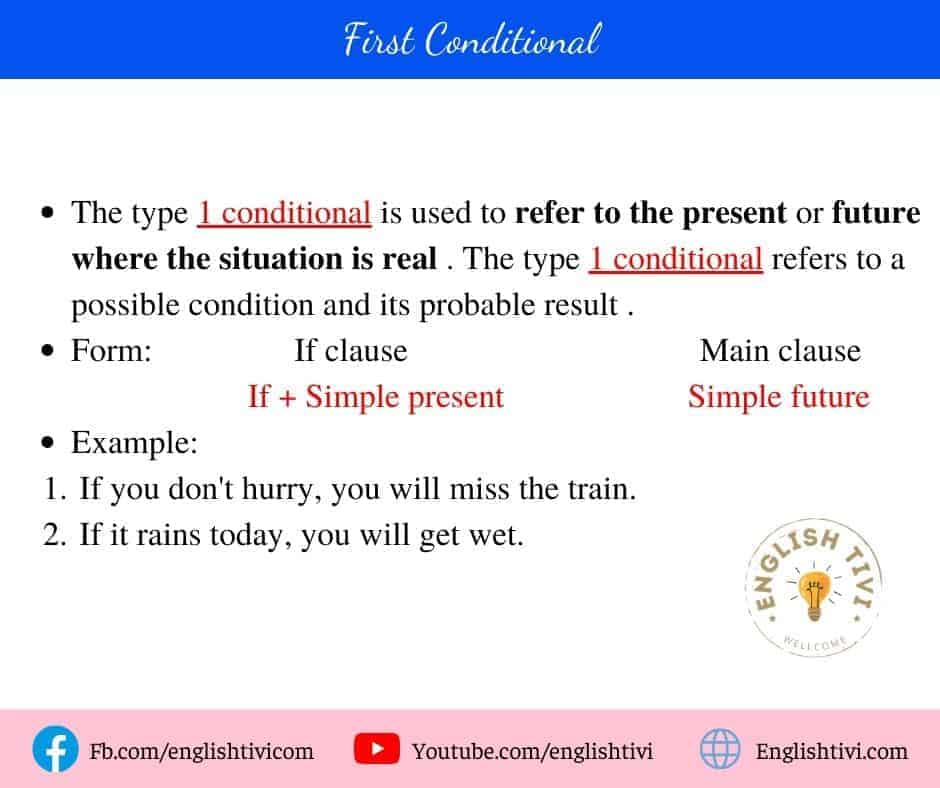
Conditional Sentences, Ifclauses type 0, 1, 2, 3 & Mixed Englishtivi
2. If-clause can occur at the beginning or at the end of a sentence. 3. When 'if-clause' is at the beginningis normally , there a comma after the if-clause. iv. Draw students' attention to the differences between Type 1 and Type 2 Conditionals (a) *Cross out the wrong answers below. The sentences above are Type 2 Conditional.
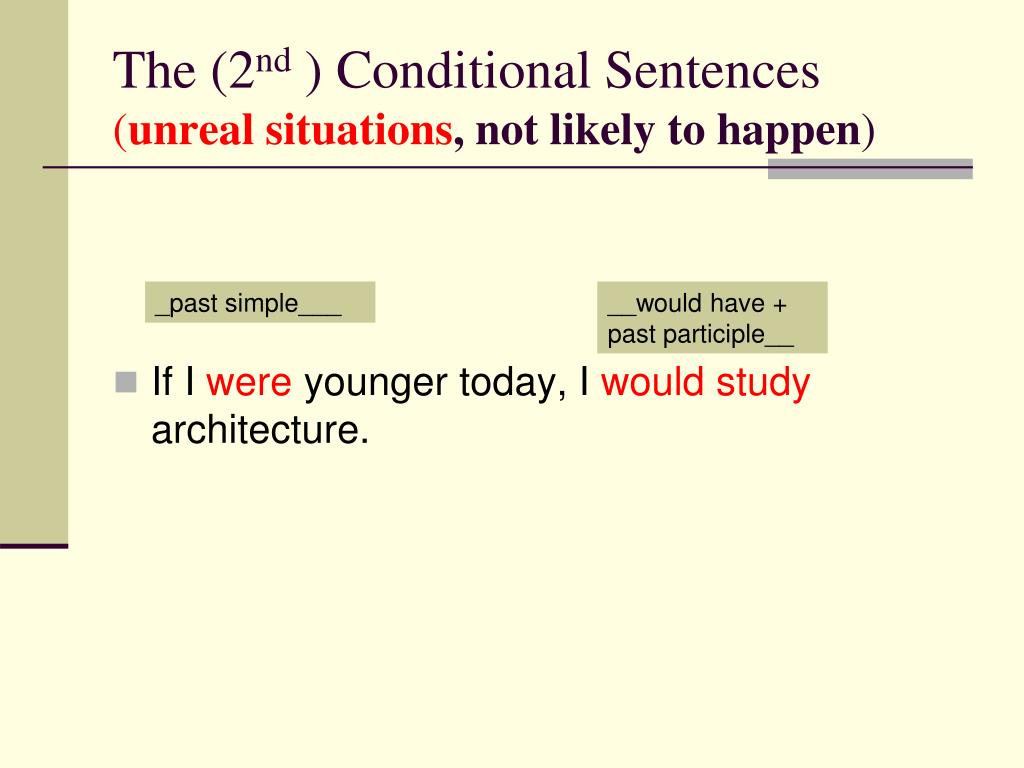
PPT Conditional Sentences ( General conditionals facts ) PowerPoint Presentation ID6896453
Factual Conditionals. When speakers present an action or state in factual conditional terms, they are stating that they accept that action or state as reality; 12. If you heat ice, it melts. 13. If Andrea cooks, I wash up. 14. If it's ten o'clock already, then I'm late. 1.1.
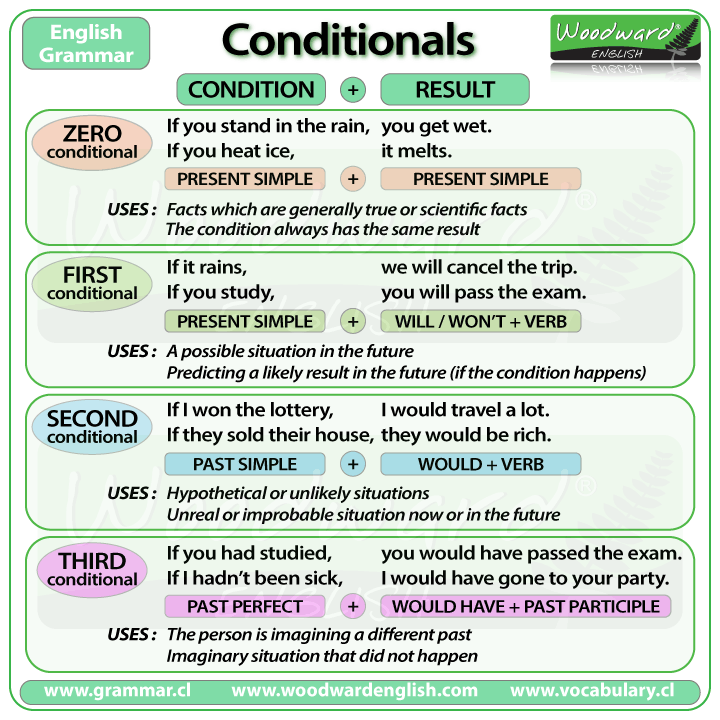
Conditional sentences
Clarifying the Conditional Tense. The conditional tense—also sometimes referred to as the conditional mood—communicates what happens, will happen, might have happened, or would have happened if we do, will do, or did do something. The situation described can be real or imaginary; in either case, an action relies on something else (a condition).
Click on IF... (Conditional sentences)
How to Know If an English Sentence Is Conditional. As you have probably noticed, all conditionals use the word if. It often appears at the start of the sentence. When you're listening or reading in English and the word if appears, there's a strong chance that it's a conditional sentence. Next, listen or look for the word would.

Conditionals 04 Types of Conditional Sentences in Grammar
Conditionals: if - English Grammar Today - a reference to written and spoken English grammar and usage - Cambridge Dictionary

Conditionals 04 Types of Conditional Sentences in Grammar
The conditional type 1 refers to a possible condition and its probable result. These sentences are based on facts, and they are used to make statements about the real world, and about particular situations. We often use such sentences to give warnings. In type 1 conditional sentences, the time is the present or future and the situation is real.
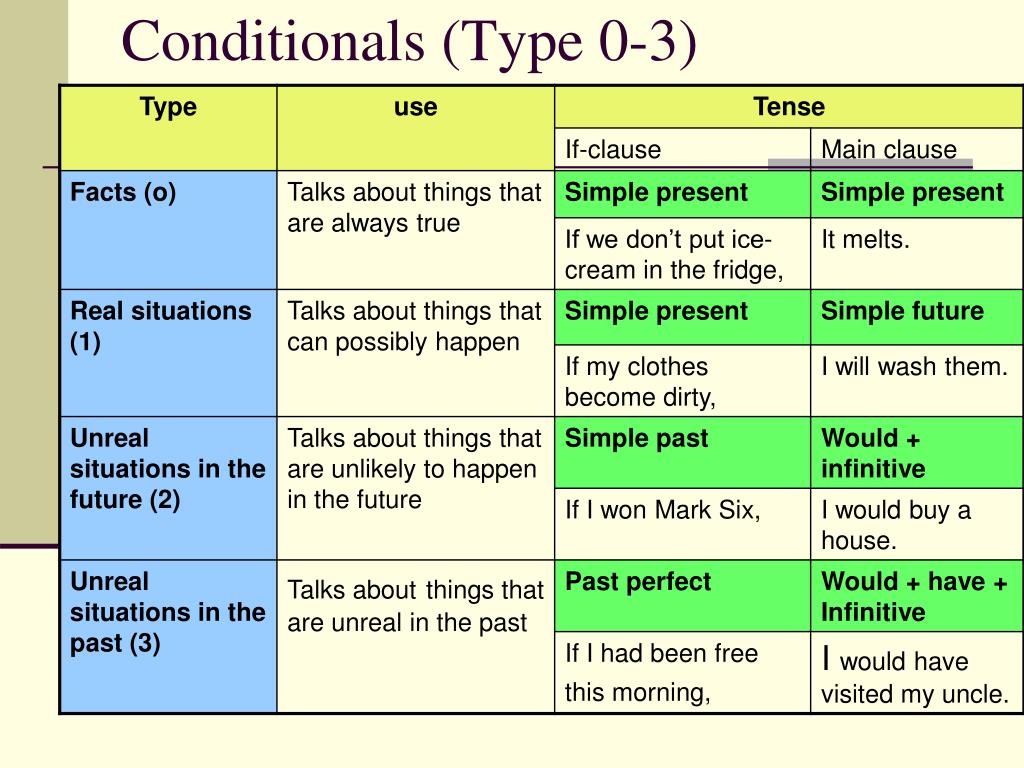
PPT Conditional Sentences ( General conditionals facts ) PowerPoint Presentation ID6896453
Zero conditional sentences. The zero conditional is used to indicate general truths, scientific facts, or habits. In zero conditional sentences, both the main clause and the conditional clause are normally in the present simple tense.. Zero conditional sentences can also use "when" instead of "if," because they refer to general truths rather than specific scenarios.

What Are the Types of Conditional Sentences & How to Use Them? Capitalize My Title
Before we get started, here's a brief chart summarizing the 5 types of conditional sentences and how they're used: Conditional sentence type. When to use. Main clause. If-clause. Type Zero. Describing known facts.

The IF Conditional Easy Guide (Learn Step By Step) World English Blog
The fact is : "I am not a teacher, I don't give present to students". The fact is in present tense because the situation of if conditional type 2 is present situation. Other examples. At this moment, if I met my teacher, I would ask him many questions. Fact: I don't meet my teacher.

Conditionals 04 Types of Conditional Sentences in Grammar • 7ESL English grammar, English
The order of the clauses does not change the meaning. If you study hard, you will pass your exams. You will pass your exams if you study hard. Conditional sentences are often divided into different types. Zero conditional. We use the zero conditional to talk about things that are generally true, especially for laws and rules.
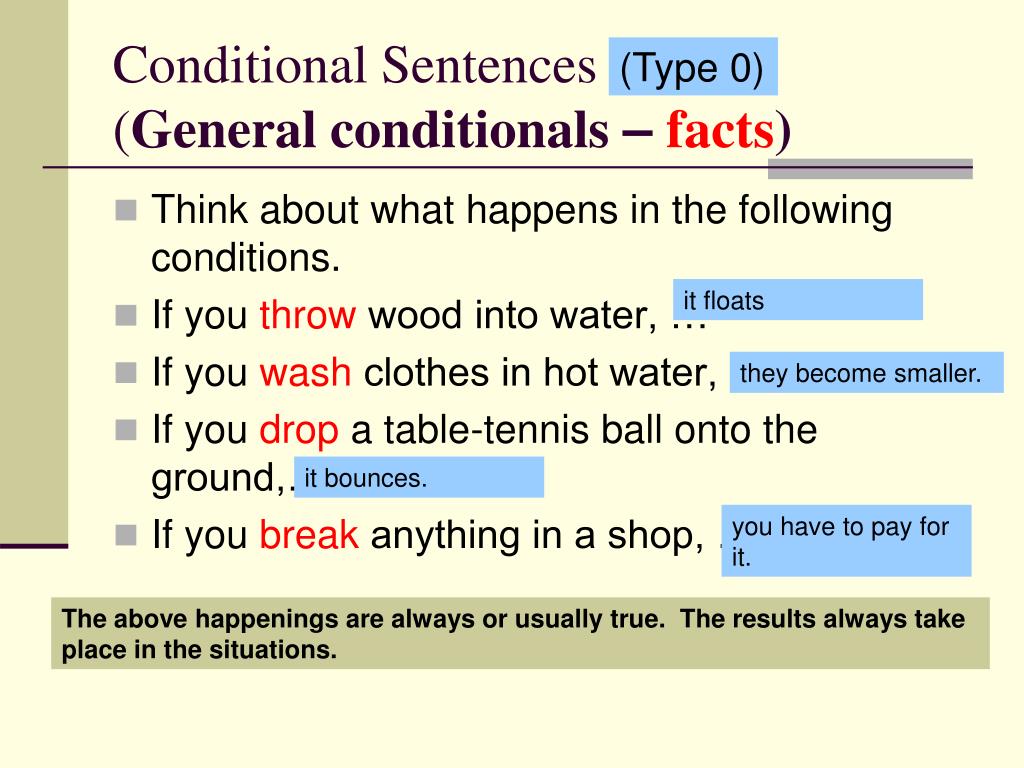
PPT Conditional Sentences ( General conditionals facts ) PowerPoint Presentation ID6896453
This means that if a certain condition is true, a certain result occurs. There are four types of commonly used conditionals in the English language that are differentiated on the basis of the degree of possibility implied by each of them. They are the first conditional, the second conditional, the third conditional and the zero conditional.
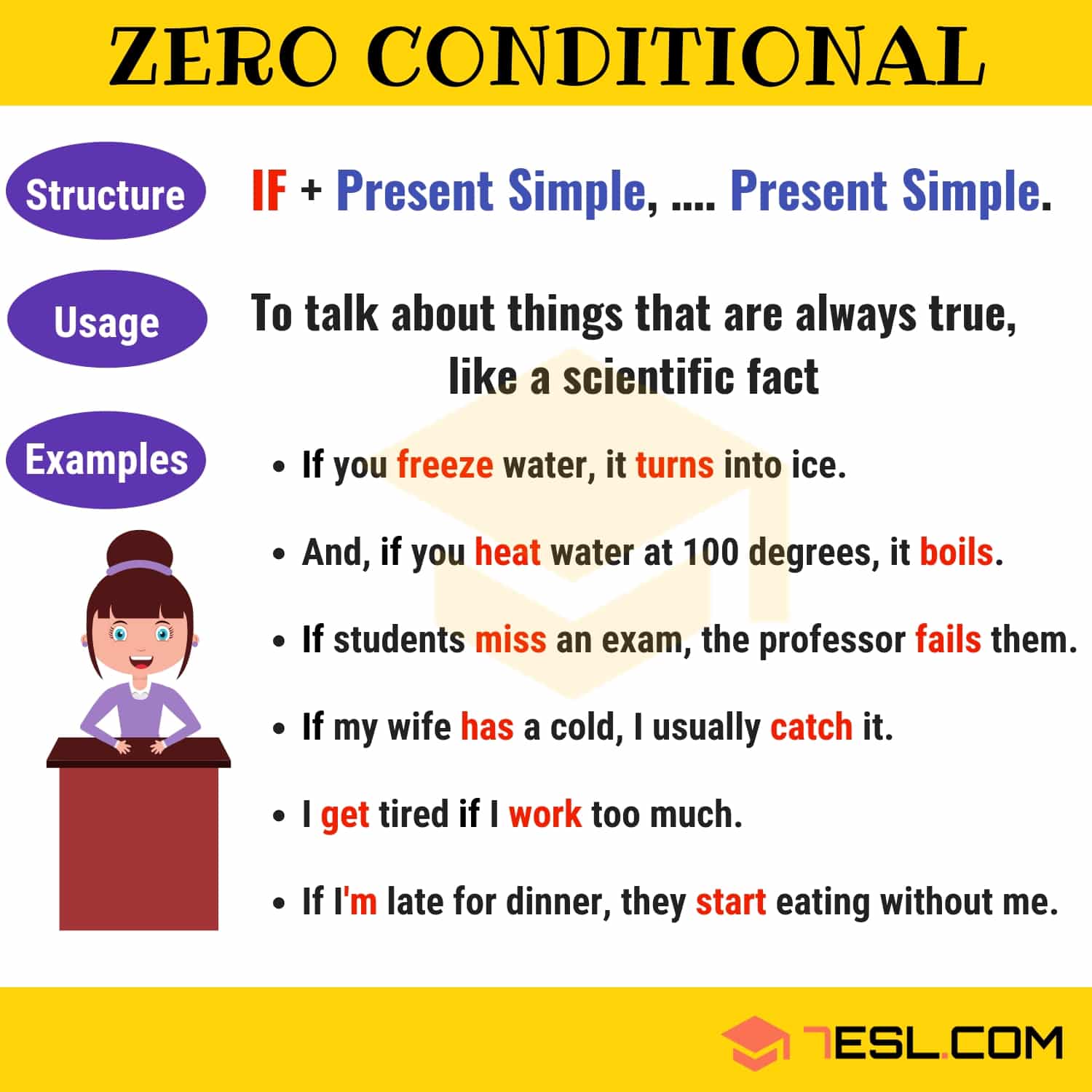
Conditionals 04 Types of Conditional Sentences in Grammar
Supposing the weather was good, I would go to the beach. or. Providing that the weather is good, I will go to the beach. or. As long as the weather is good, I will go to the beach. 1. I have a degree but I didn't do any work. Write your answer in the box, then click 'Submit' to view the answers: 2.
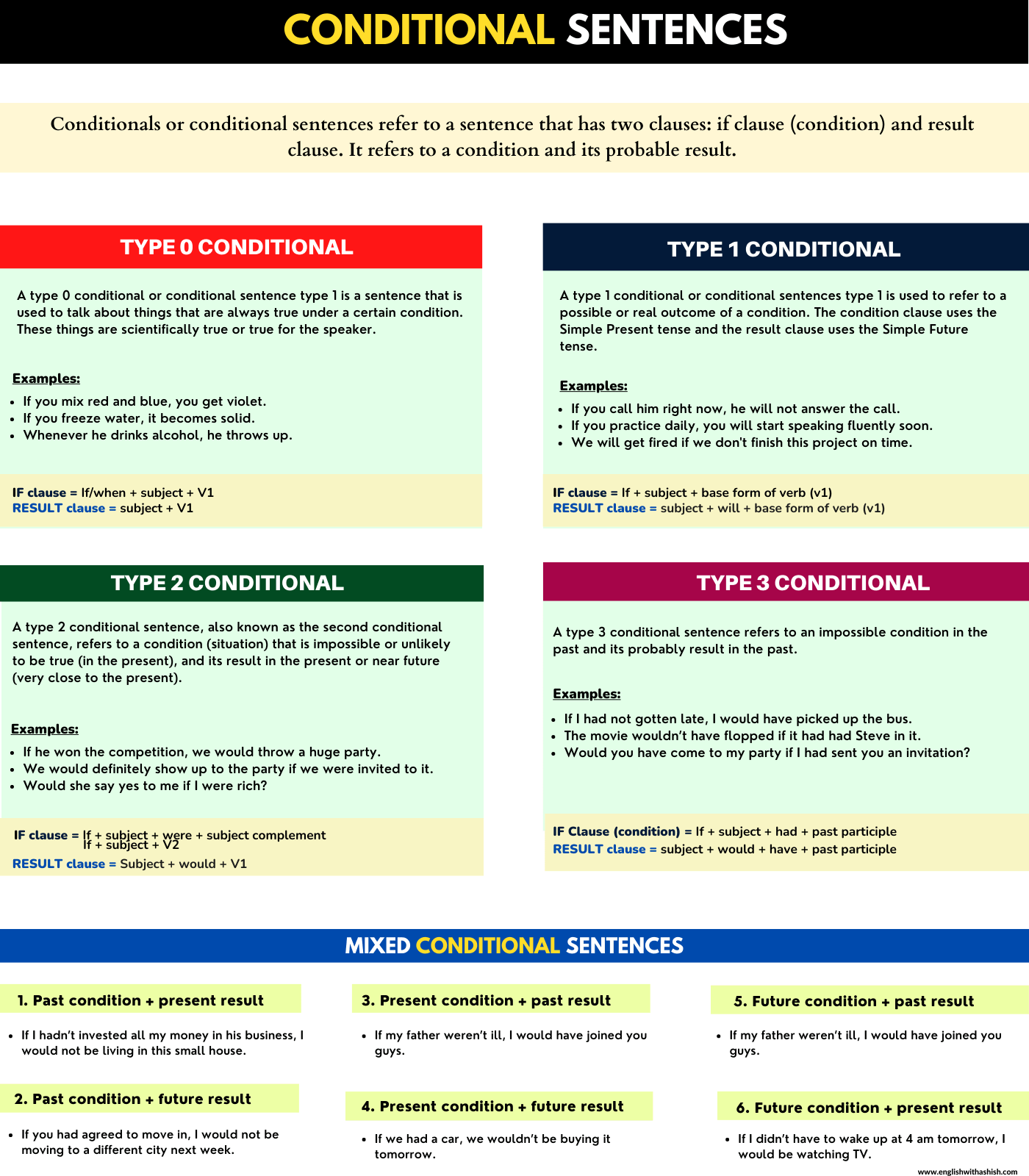
All conditional sentences in English (types, rules & examples)
These sentences have two parts: a conditional clause, which usually contains a word like "if," and a consequence. They also come in four main types, each expressing something different. For instance: Conditional Type. Usage. Type zero. General truths and inevitable consequences. Type one. Possible real-world situations and their likely results.
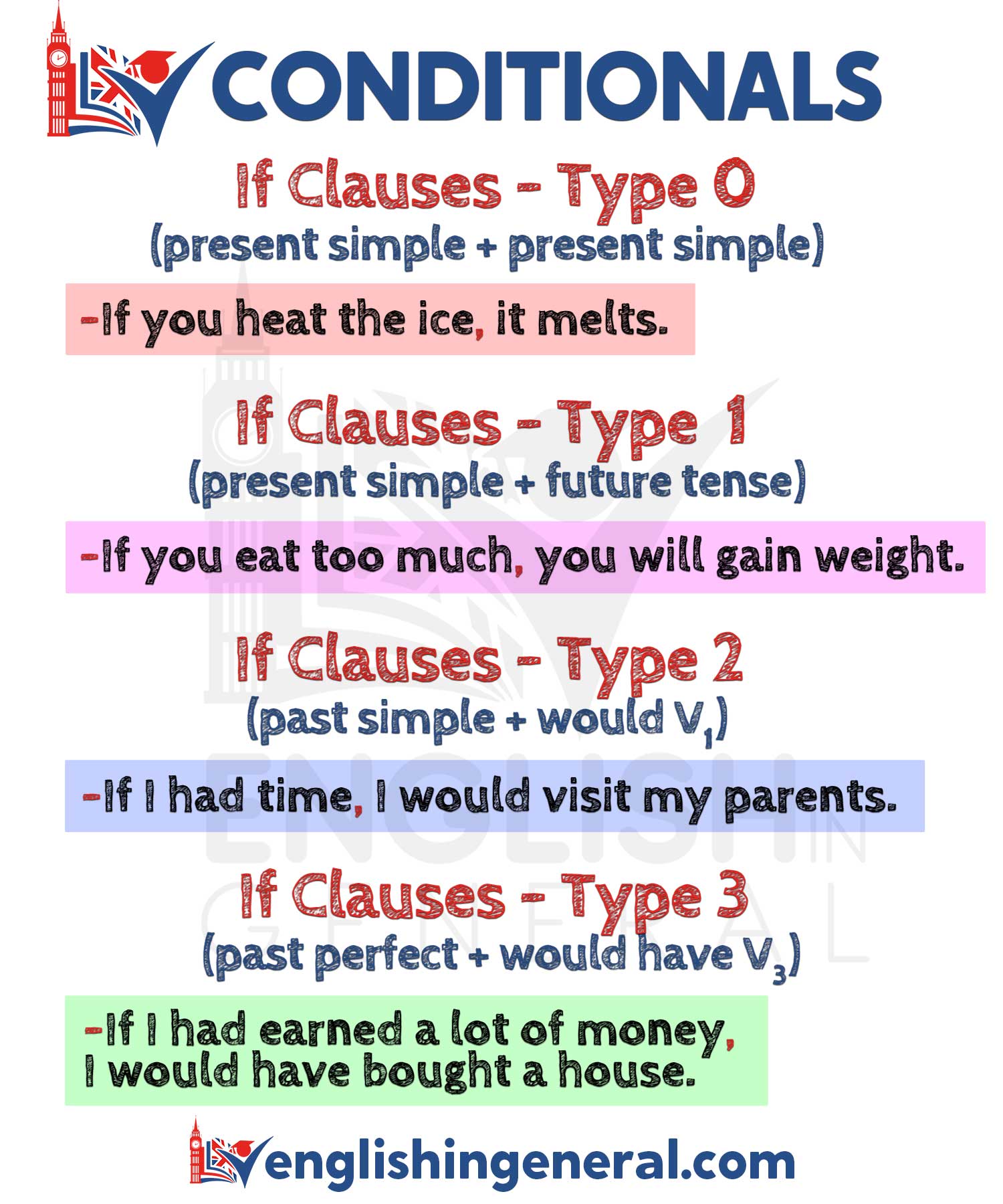
If clauses English conditional clauses English in General
Use of Conditionals. 1. Real Conditions and General Truths Zero Conditional: Expresses universal truths or scientific facts. (e.g., "If you heat water to 100°C, it boils.") First Conditional: Deals with real possibilities in the present or future. (e.g., "If it rains, I will stay home.") 2.
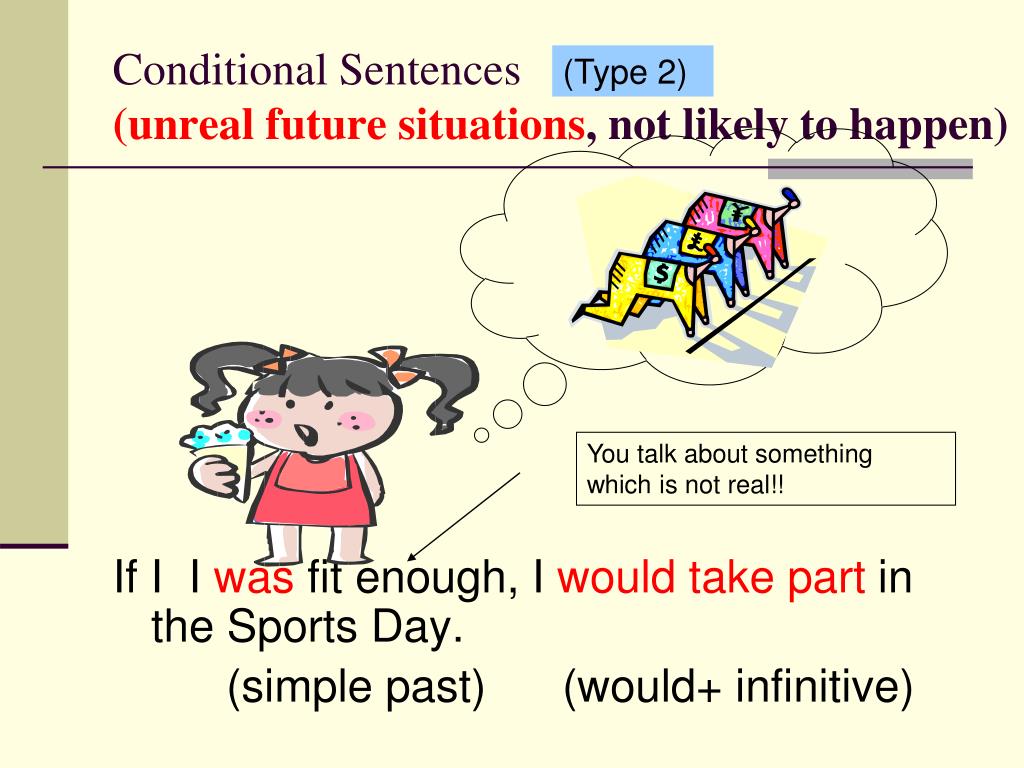
PPT Conditional Sentences ( General conditionals facts ) PowerPoint Presentation ID3352835
conditional type 3. In a conditional type 3 sentence, the tense in the 'if' clause is the past perfect, and the tense in the main clause is the perfect conditional or the perfect continuous conditional. that thing would have happened. As in all conditional sentences, the order of the clauses is not fixed. You may have to rearrange the pronouns.
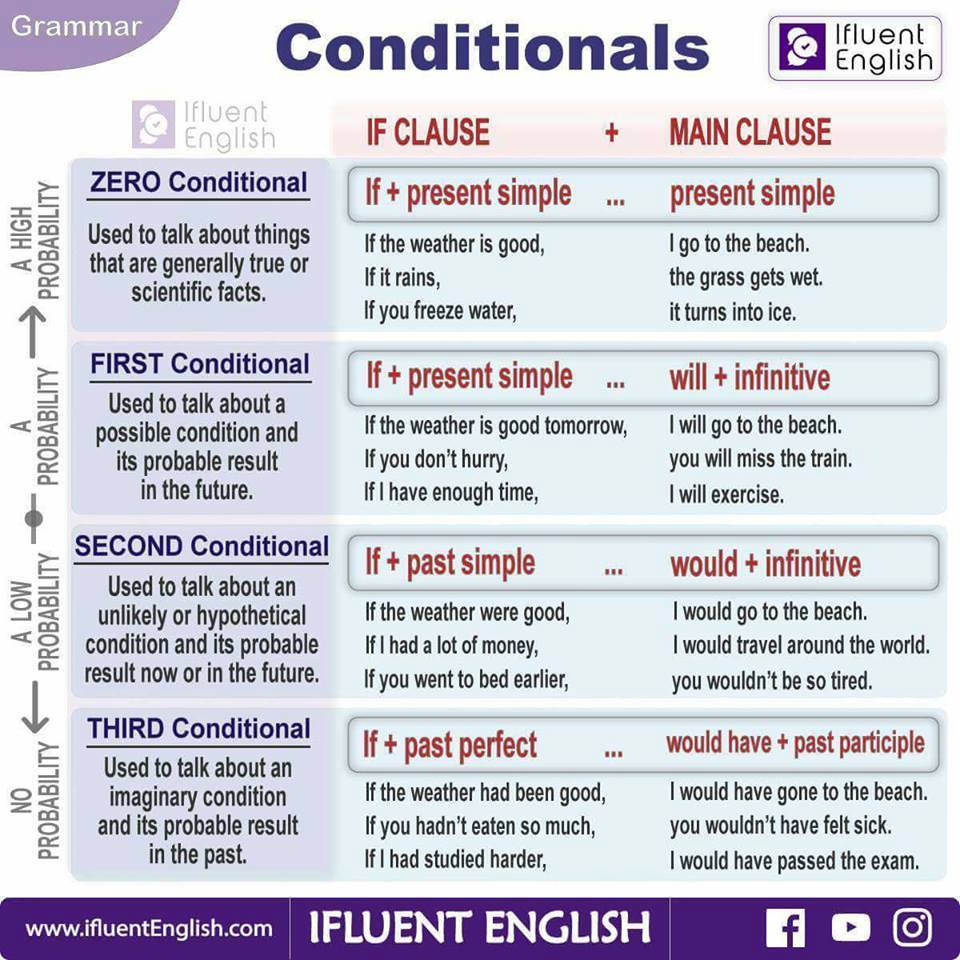
Click on IF... (Conditional sentences)
Conditional Sentence Type 3. → It is impossible that the condition will be fulfilled because it refers to the past. Form: if + Past Perfect, Conditional II (= would + have + Past Participle) Example: If I had found her address, I would have sent her an invitation. more on Conditional Sentences Type III .